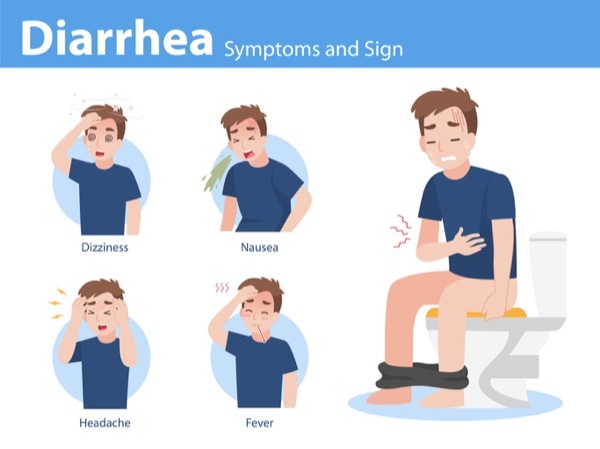
Listen to Your Gut: Diarrhea
Your stomach can tell you a lot about your health. Statistically, every adult in America will experience at least one bout of acute diarrhea this year. While the symptom is the same, the causes are numerous. You should know why diarrhea and abdominal pain happen so that you know what to do when the time comes.
Why Abdominal Pain and Diarrhea Happen?
There are several reasons for diarrhea and abdominal pain. Food is one major cause of diarrhea and abdominal pain because of sensitivities to food, contamination, changes in diet, or large amounts of rich food. Viral and bacterial infections can also enter the body through food and cause illness that results in diarrhea and abdominal pain. Certain ingredients in foods can aggravate other conditions like for people with celiac disease, where the body has trouble breaking down gluten.
Gastrointestinal issues can also be a culprit of diarrhea and abdominal pain. Overeating can lead to stomach ache and diarrhea as the body struggles to digest the large amount of food. Other conditions that affect digestion are irritable bowel syndrome (IBS) and inflammatory bowel disease (IBD). Persistent diarrhea and abdominal cramping can indicate the presence of one of these diseases, especially if it accompanies other symptoms like weight loss, bloody stool, and bloating, and if it happens multiple times a month.
Stress has been shown to affect the body in a number of physical ways, including stomach pain and diarrhea. Studies show a clear connection between the brain and the gut. Stress triggers the brain to release hormones, which cause the stomach and small intestine to slow down and the large intestine to speed up. The combination of both responses can cause upset stomach and may lead to diarrhea.
Other substances, like medication and vitamin supplements, can cause diarrhea as well. Certain prescription medications list diarrhea as a side-effect and should not be taken on an empty stomach. Too much medication can be hard on the digestive system, so always be sure to take medication as directed by your doctor. Likewise, some vitamins promote indigestion, so never begin a supplement routine without consulting your doctor first.

When Is It Life-Threatening?
Most diarrhea and abdominal pain is temporary and will go away on its own in two to three days. However, there are times when it indicates a serious problem that requires immediate attention. A good rule of thumb is if your abdominal pain is unrelenting, your stomach is tender to the touch, or the pain radiates into your back, you should seek medical attention. Other symptoms accompanying diarrhea and/or abdominal pain like high fever, difficulty breathing, vomiting, lightheadedness, or chest pain, could indicate a life-threatening condition, like appendicitis or heart attack, and warrant an emergency room visit.
If you have been diagnosed with other conditions, you may need to pay closer attention to abdominal pain and diarrhea and seek medical attention sooner. If you have had recent abdominal surgery or colonoscopy, abdominal pain could be an indication of a problem. Also, people with a history of heart attack, stroke, gastric bypass, or other gastrointestinal conditions should consult their doctor if experiencing abdominal pain or diarrhea.
What to Do?
Treatment for abdominal pain and diarrhea depends largely on the individual and the underlying cause. Most of the time home remedies are enough to minimize symptoms until the problem subsides. Drinking lots of clear liquids, avoiding caffeine and other diuretics, eating mild, fibrous foods, and adding probiotics to your diet are generally enough to reduce discomfort due to diarrhea and abdominal pain. Some people find herbs, such as ginger or chamomile, helpful. Herbs can be found in supplements or teas, but again, consult your doctor before taking any type of supplement.
To keep stress in check, be sure to get regular activity. Exercise releases endorphins, which help combat stress and anxiety. You may also try relaxation techniques, yoga, and breathing exercises to calm yourself in a stressful situation. Counseling can be very helpful for people struggling with ongoing stress or anxiety issues as well.
Lastly, your doctor may recommend medication to treat your abdominal pain and diarrhea. Certain over-the-counter medications can provide relief from pain, but in more serious circumstances, your doctor may opt for a prescription for infection, allergy, inflammation, parasites, or depression and anxiety. If you are concerned about your abdominal pain and/or diarrhea and are wondering about its cause or treatment, Needham Gastroenterology Associates can help. Book an appointment with us today!